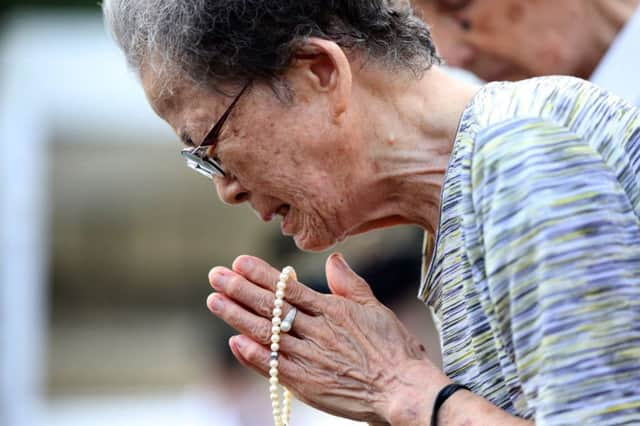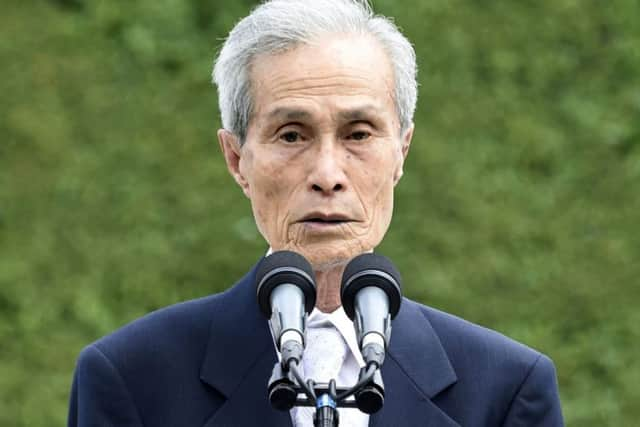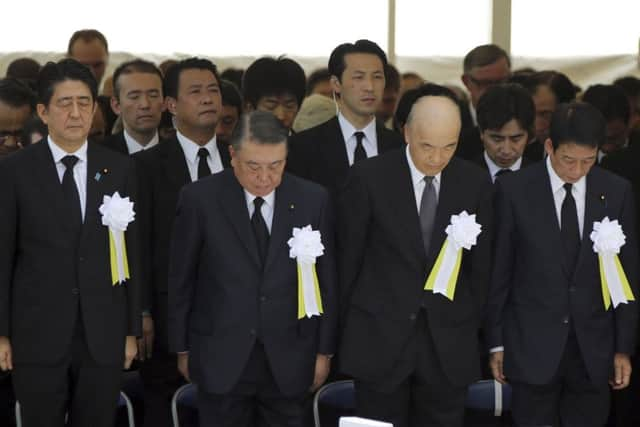Nagasaki atomic bomb survivors’ peace plea


They observed a moment of silence at 11:02am local time, which is when the United States dropped the atomic bomb, killing more than 70,000 people and prompting Japan’s Second World World War surrender.
The first atomic bomb in Hiroshima three days earlier killed an estimated 140,000 people.
Advertisement
Hide AdAdvertisement
Hide AdWith prime minister Shinzo Abe present, a representative of Nagasaki bomb survivors criticised defence legislation introduced by the government, and warned it would lead to war.


“We cannot accept this,” 86-year-old Sumiteru Taniguchi said, after describing in graphic detail his traumatic injuries and how others died in the attack on Nagasaki.
Representatives from 75 countries, including US ambassador Caroline Kennedy, were among those gathered under a tall white canopy to shade them from the sun on a 31C morning at Nagasaki Peace Park.
Mr Abe’s defence bills, which he says are needed to increase Japan’s deterrence capabilities in the face of growing threats in the region, have run into stiff public opposition. The legislation would ease constitutional limits that restrict the military to self-defence, allowing Japanese forces to defend allies in limited circumstances.
Nagasaki mayor Tomihisa Taue noted the “widespread unease” about the legislation, which is now before the upper house of parliament.


“I urge the government of Japan to listen to these voices of unease and concern,” he said.
A message from United Nations Secretary General Ban Ki-moon echoed calls by Mr Taue and others to abolish nuclear weapons. “I wholeheartedly join you in sounding a global rallying cry: No more Nagasakis. No more Hiroshimas,” Mr Ban said in a message read by Kim Won-soo, acting UN high representative for disarmament affairs.
Mr Abe said that Japan, as the only country to experience nuclear attacks, would take the lead in realising a world without atomic weapons.